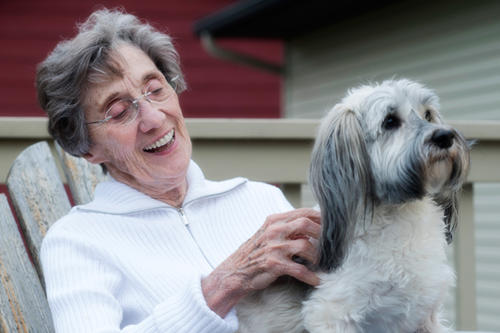
Can the use of remote monitoring technology help people with Alzheimer’s disease and other dementia-related conditions live independently longer and reduce their caregivers’ stress?
The U’s School of Nursing is conducting a five-year research demonstration project to help answer that question, thanks in part to a $1.2 million grant by the Agency for Healthcare Research and Quality.
“We are testing the potential of this relatively simple technology to improve the safety and quality of life for people with Alzheimer’s disease and dementia,” says Joseph E. Gaugler, professor at the School of Nursing. “Equally important is its potential to help relieve the stress and burden of family caregivers.”
He notes that caregiver stress can negatively affect mental health, impair the immune system, and result in greater healthcare use on the part of the caregiver—as well as expedite residential care placement for the ailing relative.
The remote monitoring system includes sensors placed discreetly throughout the home. The system is programmed to establish normal activity levels based on an individual’s daily patterns, and detects significant behavior changes in activities like sleep, movement, toileting, and eating. These are often early indicators of acute illness or the worsening of chronic conditions.
Family members can access the monitoring system using their phones, iPads, or laptops, and the system sends alerts to caregivers when certain activities or behaviors are detected.
Gaugler and his team will review alerts that are issued by the system, as well as collect data via surveys and interviews with family members.
- Categories:
- Science and Technology





